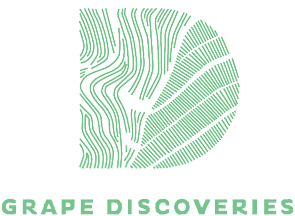James Mayor spoke with Charles Symington about Adega do Ataíde, a pioneering low environmental footprint winery
A dream winery
Often considered the canary in the coalmine of climate change, vineyards around the world are increasingly impacted by extreme weather events.
The largest vineyard owners in Portugal’s Douro Valley, the British-Portuguese Symington family have for five generations been making premium Ports, with famous brands such as Cockburn’s, Graham’s and Dow’s. Farmers with a wealth of experience, the Symingtons are keenly aware of the importance of low-impact farming in preserving the land for future generations.
Charles Symington
In 2019, Symington Family Estates (also known as Symington’s) became a certified B Corporation, a global movement of companies committed to meeting the highest standards of verified social and environmental performance.
The following year, Symington’s joined International Wineries for Climate Action (IWCA), an organisation leading the wine industry’s response to the climate crisis through a framework of measurable CO2 reduction goals.
In the autumn, Symington’s completed their first vintage at a new state-of-the-art, low-intervention winery at their 350-hectare Vilariça Valley property Quinta do Ataíde, in the Douro Superior.
Essential Algarve spoke with Charles Symington, Winemaker and Production Director, about the first LEED (Leadership in Energy and Environmental Design) winery in Portugal.
“We’re looking at Level 4, equivalent to ‘gold’, which would make us the only LEED Level 4 certified winery in the world,” he states.
With 29 vintages to his credit, Charles Symington has been involved in building or modernising eight wineries.
“The entire ethos of Adega do Ataíde is different to our other wineries. We started from scratch and worked with the people from LEED throughout the process.”
The Symingtons built a multidisciplinary in-house team with two full-time architects, construction and mechanical engineers, a landscape architect and winemakers. A site was found on a descending valley, with the opportunity to create a gravity flow, to ensure the lowest possible environmental impact for the 4,500sqm winery by building into the landscape, harmoniously combining function and form.
Symington’s is concentrating production of all their premium and super-premium Douro DOC wines at Adega do Ataíde.
The property has been biologically certified since 2006. “We were precursors in the Iberian Peninsula,” Charles Symington comments. “Having the winery on the vineyard offers us much more flexibility and allows a massive gain in precision winemaking and quality.”
Today, 30% of the vineyard is mechanically harvested and the winery has cool rooms to store the day’s picking. With gravity flow there is no need for mechanical pumping of the must, consequently improving hygiene control.
With its own solar panels, the winery has Net Positive Energy (meaning they produce more energy than they consume annually). “This first year was a test run, which went incredibly well, partly because, with Covid, we were able to take our time over the building project. New wineries often present unexpected problems, but we didn’t encounter any.”
As for the 2023 vintage, Charles Symington says: “Rain spoiled the last part of the vintage, but 70% was extremely good with conditions better than 2022. You’re constantly looking at weather forecasts, absolutely critical in influencing decisions. However, you don’t make good wines unless you take risks.”
When asked if he gets any sleep at harvest time, he admits – “I sleep very well, as I have an exceptionally good team, many of whom have worked with us for years.”
Adega do Ataíde can produce 80,000 cases of wine and the Symingtons also have 76 hectares of biological olive groves on the property, with plans to produce olive oil.
Charles Symington did his Masters in oenology and viticulture at Rioja, a region with a climate similar to the Douro. “I understudied my father Peter for 15 years in making Port. When you study oenology, you don’t really learn about Port, it’s only one lesson in the course, so you learn on the job. You have to understand your stock, how a wine’s going to perform and when it’s reached its peak,” he recalls. He estimates Symington’s have 250 different Ports.
The company also started making table wines at the end of the 1990s. “It was clear to us table wine was going to be an important part of the future. We invested in additional vineyard and made considerable plantings from the late 1980s. This made it possible to make two wines, Port and Douro DOC.”
A mountainous region, the Douro has some of the world’s most expensive grapes to grow. “Hand-picking on a slope is really the region’s Achilles heel, but we’ve broken the back of mechanical harvesting in terraces,” says Charles Symington. “The future isn’t in volume. The region needs to concentrate on producing premium quality. There’s huge room for growth in table wine production at the higher level, we’re currently only scratching the surface. We’ve gone from being quite traditional to being absolutely at the forefront. I don’t think there’s any region in the world ahead of us in terms of scientific knowledge.”
In 2016, Symington’s acquired a first property outside the family’s beloved Douro: Quinta da Fonte Souto, in the Portalegre region of the Alentejo.
“The quality of the whites has been a revelation.” This was followed by two further diversifications: into Vinho Verde, with the acquisition of Casa de Rodas in the Monção and Melgaço sub-region, where the family will produce Alvarinho wines with top Vinho Verde winemaker Anselmo Mendes, and a joint-venture with Caves Transmontanas, celebrated Douro producer of Vértice sparkling wines.
Essential Algarve asked Charles Symington if his family would ever consider making wines outside Portugal: “We’ve just made a bid, with Berry Bros & Rudd [the UK’s oldest fine wine and spirits merchant] to acquire Hambledon, in the UK.” Sure enough, a few days after our conversation, Symington’s announced the acquisition of famous English sparkling wine producer Hambledon Vineyard, the family’s first winemaking venture outside Portugal.
“Perhaps we’re returning to our roots,” he muses.







